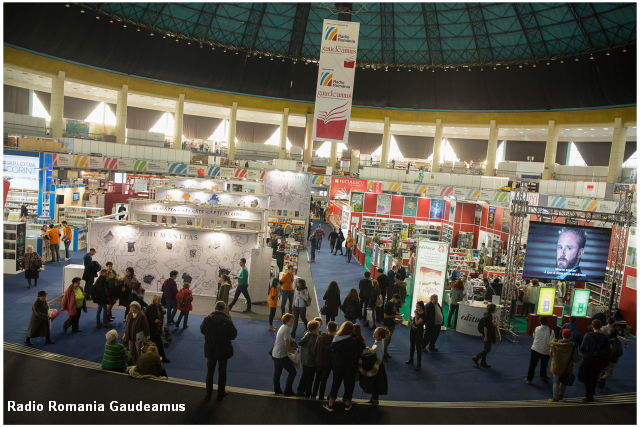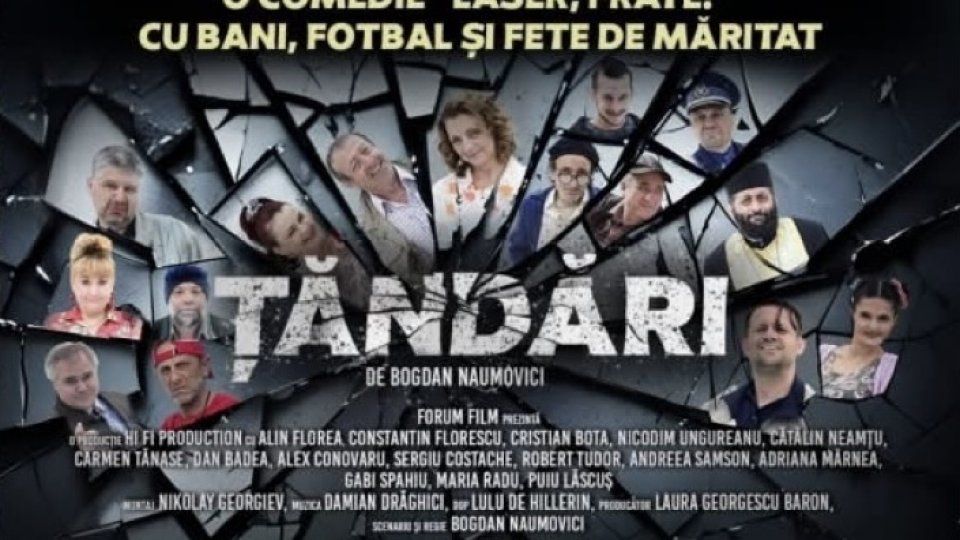The Gaudeamus Book for Learning Fair
For four days, the ROMEXPO Central Pavilion in Bucharest played host to the 23rd edition of the Gaudeamus Book for Learning Fair, the biggest events of its kind in the country.

Corina Sabău, 10.12.2016, 14:08
For four days, the ROMEXPO Central Pavilion in Bucharest played host to the 23rd edition of the Gaudeamus Book for Learning Fair, the biggest events of its kind in the country. Around 40 publishers from across the country welcomed visitors between November 16th and the 20th to browse through thousands new titles, meet famous authors, attend book signing sessions and enjoy sizeable price discounts and personalised offers for every category of readers. Today we look at some of the titles launched at the fair.
Poet and literary critic Ruxandra Cesereanu is also a researcher of political concentration camps. Her volume titled The Fugitives. Escapes from prisons and Camps in the 20th Century published by Polirom in Iasi in 2016 is the closing book in a cycle exploring that phenomenon. Also part of the cycle are the studies Journey to the Centre of the inferno. The Gulag in Romanian Consciousness and Panopticum. Political Torture in the 20th Century, both of which have been published in two editions. The Fugitives. Escapes from Prisons and Camps in the 20th Century, the closing volume of the aforementioned cycle, is a book about escape, which, particularly in the 20th century, was an act of defiance of criminal political systems. It might be said that Ruxandra Cesereanu’s essay on escape strikes a more optimistic note compared with the previous volumes in the series.
With details, here’s Ruxandra Cesereanu herself: “In Romania, very few people managed to escape and most of them are mentioned in the book, but there may have been more attempts at escaping. I focused especially on two cases that to me were special, including the man who was my inspiration for the book. His name is Ion Ioanid and his book called Our Daily Prison, whose first volume, a seminal work for the genre of prison memoir, recounts the 100 days when he was free, probably one of the freest people in the infamous year 1953, when he escaped from the labour camp in Cavnic. I was also interested in his escape from an anthropological point of view, because his experience provides an X-ray of the human spirit faced with all sorts of psychological, physical, social and mental trials. Ion Ioanid’s escape also explores the transition from the state of imprisonment of a man the system seeks to lobotomise so to speak, to that of a free man, a savage man, his savageness being in fact a form of maximum freedom.”
Another interesting title we came across at the Gaudeamus fair is Writers at the Police. The book is full of comic or truly tragic moments, resourceful ways of getting out of critical situations and unintentional self-incrimination and is a collection of statements by a host of literary figures recounting their run-in with law enforcement.
The anthology was initiated by writer and journalist Robert Serban and features texts written by over 30 writers. Robert Serban tells us more: “It occurred to me that every writer has had an encounter with the Police one way or another. There had to be a funny or not so funny run-in with the police in every writer’s life. It was summer and the holidays were coming and I thought it wouldn’t be a bad idea to mention it to my writer friends. So I wrote to these 34 writers who at that time were active on Facebook, asking them if they would do it. I didn’t know how I would publish their texts, but I thought we would surely find a publisher who would be interested. What’s for sure is that a very interesting book came about, a sort of usage manual on how to deal with the law enforcement people. Most of the stories are full of fun and humour, while others not so much, especially those set in the communist times. Readers will therefore be able to tell the difference between the encounters with the police before and after the fall of communism. The police appear in a better light in the latter case because in most cases they are people who know their job and who are much nicer when they find out you are a writer, that is you have the head in the clouds. So they also let their guard down a bit.”
Also at the Gaudeamus book fair, the Casa Radio publishing house launched a new title under the heading Great Voices Pull Back the Curtain as part of its Radio Library Collection called On account of Today’s Crisis of the Soul. Radio Conferences 1933-1943 by Alice Voinescu in the form of an audiobook. The first woman in Romania to hold a doctoral title in philosophy, an outstanding teacher of drama history and aesthetics and an advisor for the Women’s Christian Association, Alice Voinescu still comes across as topical and rational.
The Casa Radio publishing house also issued a series of collections for the young public Children’s Radio and Goodnight, Children! Consisting of comic books, original book illustrations and radio stagings for children. Daria Ghiu from Casa Radio explains: “We always have a day dedicated to children at the fair. Some of our collections for children are in high demand, I’m referring to Goodnight, Children! and Children’s Radio, which draws on our collection of radio plays for children featuring voices of great actors. We launch these together with comic books and new illustrations. Casa Radio’s stand at the Gaudeamus Fair this year also hosted a workshop held together with a number of artists and actors. One such name is actress Alexandrina Halic, whose wonderful voice delighted us all when we were children. Another guest is Alexandru Ciubotariu, who is responsible for Casa Radio’s comic books and who coordinates the Children’s Radio collection. The challenge when it comes to the comic books is how to give a contemporary feel to a staging from the 1960s or 70s with the help of news illustrations. We have many fans of this type of audiobook, many of whom grew up with this kind of book.“





























